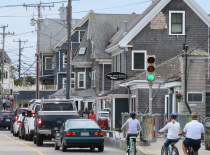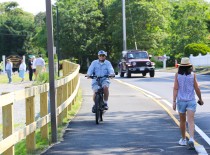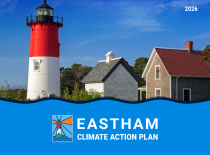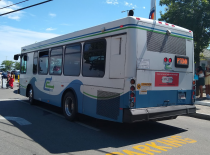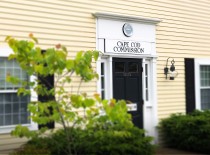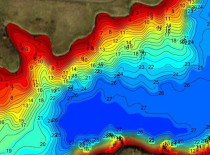Category: Newsletter
In 2022, the Cape Cod Commission debuted the High Groundwater Levels Data Viewer, providing a more accessible, up-to-date way to estimate seasonal high groundwater levels anywhere on Cape Cod. Recently refreshed with visual and usability updates, the Viewer continues to serve as an essential resource for engineers, surveyors, septic professionals, and local officials.
Each year, the Cape Cod Commission receives funding through the Massachusetts Executive Office of Housing and Living Communities to provide technical assistance to towns in our region. The District Local Technical Assistance (DLTA) program helps municipalities with sustainable development and encourages partnerships to achieve planning and development goals that align with state and regional priorities.
Over the years, DLTA funds have supported housing and wastewater initiatives, studies of redevelopment options and economic development strategies, and targeted local planning and zoning efforts. Seven projects received 2026 DLTA funds.
The Cape Cod Commission has been awarded $476,800 in federal funding through the U.S. Department of Transportation’s Fiscal Year 2025 Safe Streets and Roads for All (SS4A) grant program to advance roadway safety across Barnstable County.
The grant will support Planning and Demonstration Activities that build on the recently completed Cape Cod Vision Zero Action Plan, with a focus on reducing fatal and serious injury crashes and making Cape Cod’s roadways safer for everyone, including drivers, pedestrians, bicyclists, and transit users.
On Cape Cod, the cost of purchasing or renting a home far exceeds what typical year-round households can afford. Working with Outwith Studio, the Cape Cod Commission has completed an analysis examining incentive-based strategies that communities can use to increase the supply of year-round housing, an issue that continues to affect the region’s workforce, families, and long-term residents.
A status on projects currently under review by the Cape Cod Commission.
The Cape Cod Commission and the town of Eastham have released the draft Eastham Climate Action Plan for a 30-day public comment period. Created with input from many community members, including full- and part-time residents, business owners, local organizations, municipal staff, and other partners, the plan provides a clear framework to guide local climate action through defined goals, strategies, and implementation measure
In October 2025, the Cape Cod Regional Transit Authority (CCRTA) promoted John Kennedy to Administrator, filling the position left by the late Tom Cahir, who served for 16 years. Read more to learn about his new role and approach for leading the region's transit organization.
The Cape Cod Commission is pleased to welcome two new staff members and an AmeriCorps service member to our team. Read more to learn about Planner II Jasmine Olins, Regulatory Planner Ellen Carlson, and AmeriCorps member Ciara Chagnon.
The Cape Cod Commission is exploring whether a Transportation Management Association (TMA) could help address the region’s growing mobility challenges, including seasonal congestion and workforce transportation needs, as well as the anticipated impacts of the upcoming replacement of the Sagamore and Bourne bridges.
With major infrastructure projects approaching and travel patterns continuing to evolve, regional partners are considering new tools that can improve mobility, support economic development, and better coordinate services across Cape Cod.
Across the region, efforts to collect and compile pond data are expanding. One of the most significant data gaps in fully assessing pond health is bathymetry, the measurement of the depth and shape of a water body’s bottom, essentially, an underwater topographic map. Bathymetric data describe how deep a pond is at various locations, the contours of the pond floor, and changes in depth that influence how water moves and mixes. To address this need, the Cape Cod Commission is initiating a project to survey bathymetry in approximately 30 ponds across the region.

